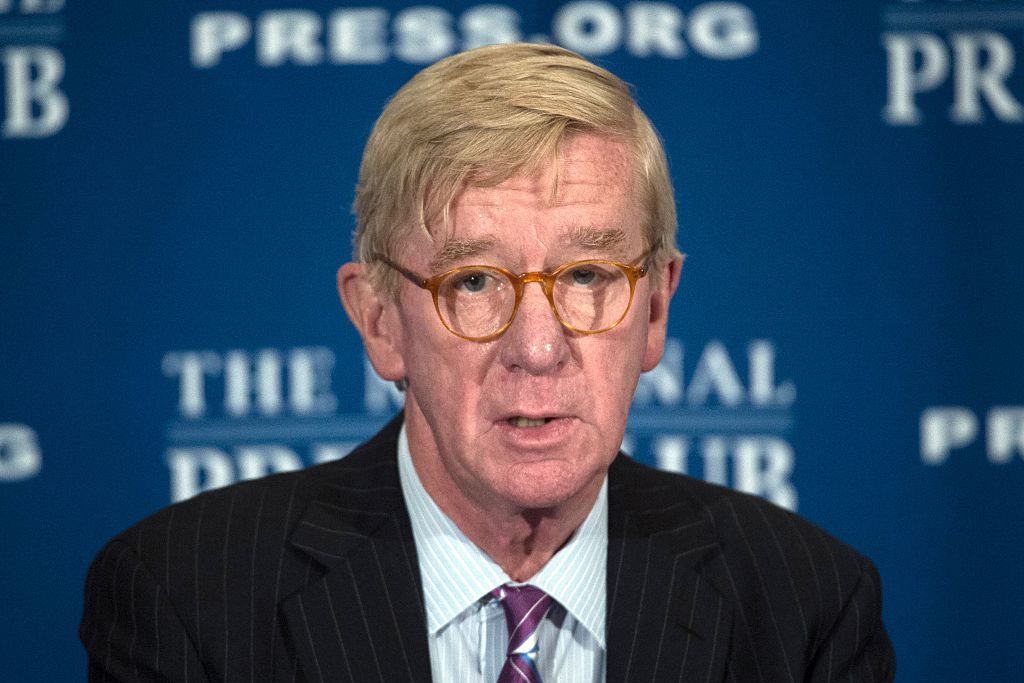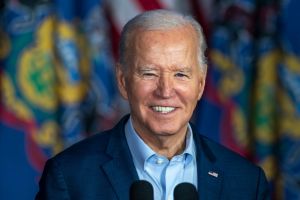Good news for Team NeverTrump: they have their man — a declared 2020 primary challenger to Donald Trump, and it’s exactly the man they wanted, the former Republican governor of Massachusetts, a man who has graced a presidential ticket before, Mitt… Sorry, Willard… No, wait… Will…
William. As in William Weld. The other former Republican governor of Massachusetts who once had a spot on a national ticket, as the Libertarian party’s 2016 nominee for vice president. Romney has carpet-bagged his way to the US Senate, after all, a perch from which he can write Washington Post op-eds to show how woke he’s become. Romney was the racist, sexist Republican nominee known for ‘self-deportation’ and ‘binders full of women’ in 2012, but in January of this year, on the eve of his Senate swearing-in, he revealed that from now on he ‘will speak out against significant statements or actions that are divisive, racist, sexist, anti-immigrant, dishonest or destructive to democratic institutions.’
One might wonder why, if Romney thinks his party’s leader is guilty of all that — and if he thinks, as he must, that the rest of the party is craven for failing to denounce him — he bothers to keep the ‘R’ next to his name. What exactly is preventing Romney from becoming a Democrat? It can’t be his differences with the party’s healthcare plans — Obamacare was modeled on Romney’s Massachusetts plan. And Romney worked hard not to let Ted Kennedy get to the left of him on social issues in his first bid for the Senate all the way back in 1994. Romney defined himself as ‘pro-choice’ then, and he reaffirmed his convictions about the ‘right to choose’ when he ran for governor in 2002. But Mitt’s a miracle of evolution: by the time he was ready to run for the Republican presidential nomination in 2008, he had grown a whole new position on abortion, the opposite of his last one. So if he’s now evolved into the kind of Republican that MSNBC viewers can feel comfortable with, it’s not such a shock. But they don’t elect Democrats in Utah, so Romney remains a Republican, as well as a chameleon.
Romney may be unscrupulous, but he is not stupid, so he’s not going to challenge Trump in the only way that counts, in the electoral arena. He remains safely on the sidelines as a fantasy for NeverTrumpers, a mythical paladin who would restore true NeverTrump principles to the GOP and White House, but who just won’t run. Maybe Julian Assange has threatened to leak his emails or something.
So that leaves them William Weld, who declared his candidacy Monday. And what’s wrong with him? In 2016, Weld happened to run on a Libertarian ticket alongside an actual libertarian of sorts, fellow former Republican governor (of New Mexico, in this case) Gary Johnson. The Libertarian party had ballot access and two experienced ex-GOP governors on its ticket, yet the mandarins of the NeverTrump clique did not endorse Johnson-Weld. They put their efforts behind a hopeless former CIA man, Evan McMullin, who had no party and little ballot access, instead — a curious thing to do if the point was to stage the biggest possible protest against Trump. But it’s not curious when you know that NeverTrump is not just a movement of negation, but believes in something positive: not social conservatism or small-government conservatism — neither of which would claim Romney as a star representative — but neoconservatism. McMullin was a proud supporter of the Iraq War that Trump denounced, and that Johnson also opposed. If all NeverTrump wanted was an anti-Trump Republican, Johnson-Weld should have done the trick. But if you wanted a candidate who hated the American First theme on which Trump campaigned, Johnson-Weld would not provide the desired contrast — McMullin, on the other hand, would.
Weld had been a war-hawk himself back in the glory days of the George W. Bush administration, but he pulled a Romney when he joined the Libertarian party and decided he was antiwar after all. Now that he’s back in the GOP, will his plumage revert? Or has Trump triggered his haters in the GOP pundit class so much that they’ll take an alternative like Weld no matter what his positions wind up being? Unfortunately for Weld, he may seem like such a perfectly antiquated 1990s liberal Republican that even desperation won’t drive the NeverTrumpers into his arms. Some of them do have half an eye to the future, and Weld is entirely a figure of the past. A complete blank, a second McMullin, might be more useful for NeverTrump purposes than soiled goods like Weld.
But the NeverTrumpers pine for more — if not Romney, then maybe Larry Hogan. Last month I had a brief but cordial conversation with a NeverTrumper who hoped Hogan would jump into the race. Why, I asked, when he obviously had no hope of winning? My interlocutor agreed he would lose, but Hogan would stand up for the honor of the party, show that it could still be home to voters who opposed Trump and Trumpism. I asked whether Republicans had ever in their modern history rewarded someone for a primary challenge to a president — wouldn’t most Republicans, who after Trump supporters after all, just blame a primary challenger for weakening him if he lost the general election? My NeverTrump friend, getting a little flustered, said that all the ex-Republicans who had left the party since Trump took over would come flooding back, inspired by a challenger, and maybe new voters would join, too, and so it wouldn’t matter if the Trump supporters who are the party’s present majority were mad a Hogan and his supporters. I was surprised to hear a serious political analyst say this — the right-wing of the Republican party has grown every time it’s lost an election, and if Trump loses in 2020, the immediate post-Trump GOP will be defined not by regret over Trump but by fierce opposition to the Democrat who replaces him.
This is the bottom-line problem for NeverTrump — whether Trump serves another four years after next November or not, the GOP base is not looking to return to nominees like John McCain and Mitt Romney or either of the two Bushes. The Republican party is the Flight 93 party, as far as its voters are concerned, and the NeverTrump crew are not the men to rush the cockpit.


















